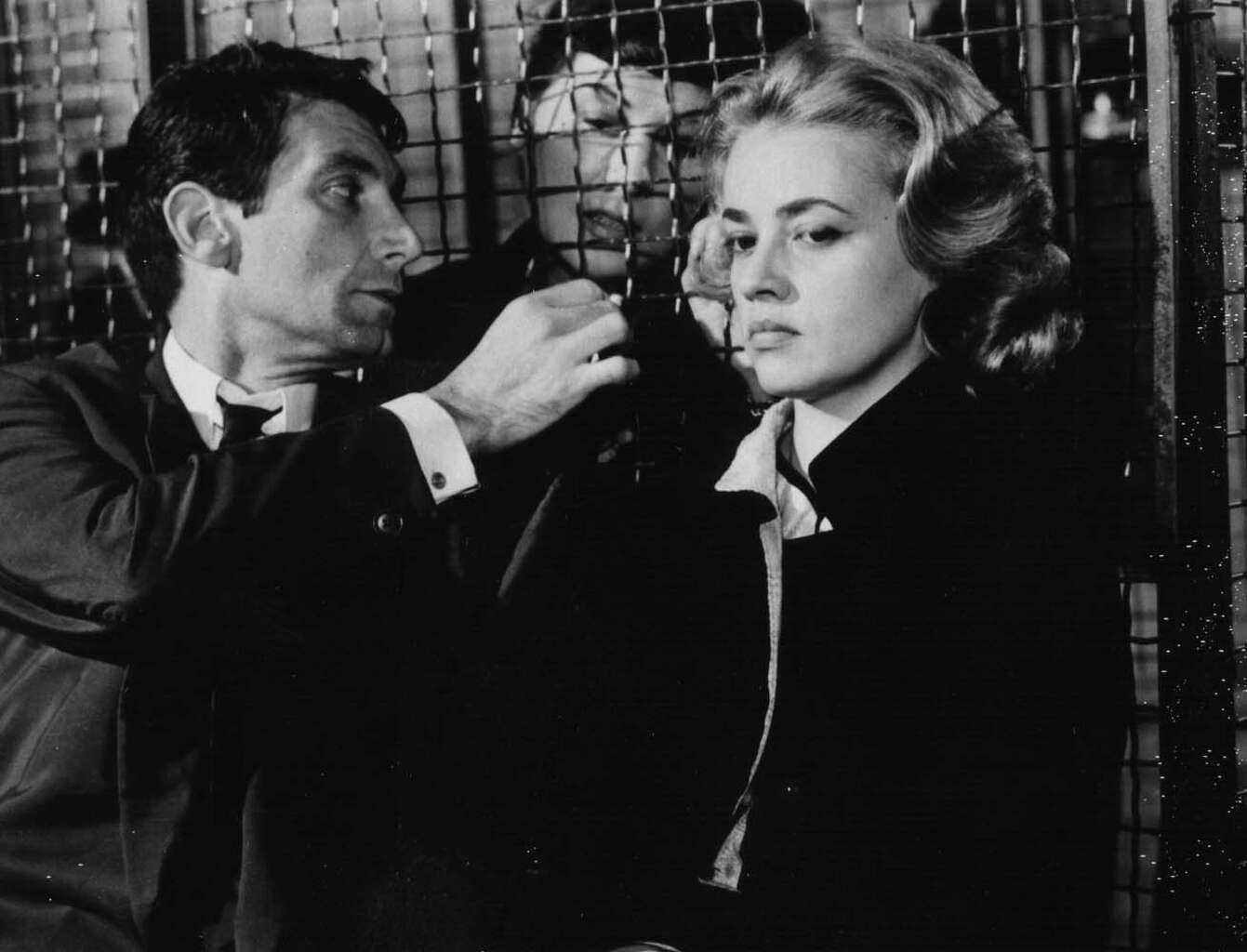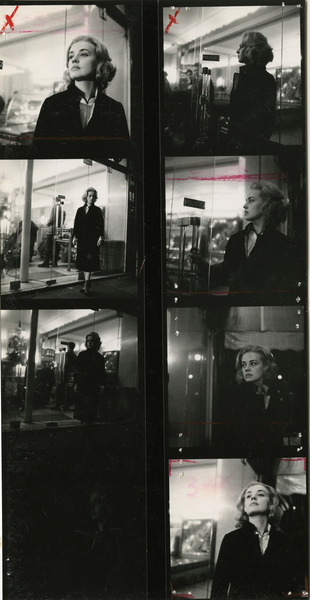
Julien and Florence are lovers. Together, they plan and carry out the murder of Florence's husband. In an attempt to suppress an incriminating clue as he flees, Julien finds himself trapped in the lift at the scene of the crime.
EN
“Louis Malle: We were making ‘our’ first film. Besides, the start had been difficult. The producer had not been enthusiastic about Noël Calef’s book. Nevertheless, he recognized that we had found a good police intrigue. It was therefore going to be a B-movie with Jeanne Moreau on the bill [. . .] who at that time acted in those types of film. In fact, we invented the character played by Jeanne Moreau. The part did not exist in the book.
Jean Namur: But well before l’Ascenseur, Roger wanted to meet her. He had been mesmerized by her.
Louis Malle: Possibly, but it was Nimier and I who wanted the female role. The choice of actress came afterwards. Jean Thullier thought that the film would sell as a B-movie. And, in that genre Jeanne Moreau was expected. At the time, she was making a name for herself in the theatre. In the cinema she was making film noirs with Gabin. Things changed with Ascenseur and Les Amants. For example, Antonioni hired Jeanne Moreau for La Notte because he liked her long night-time wandering along the Champs-Elysée from Ascenseur.
[...]
Marc Dambre: Did Roger Nimier take part in the shooting? On the 27 September 1957, he wrote to Antoine Blondin: “But I don’t go to the studio, for fear of taking over the direction and finding myself with a new profession.” Is that remark merely a humorous quip or was Nimier interested in the technicalities of cinema, in the making of the film?
Louis Malle: I do not think he would have had the immense patience that is necessary in my profession! In fact, he did not come very often. Being on the sets of the shoot as a spectator is very boring. And anyway I don’t think that Roger took the cinema seriously. It amused him, but basically he only loved literature. And the theatre.
Marc Dambre: Did he make any suggestions other than those that related to his own participation on the film?
Louis Malle: We worked together on the adaptation and he put his name to the dialogue. But he suggested Germaine Tailleferre (from the “Groupe des Six”) for the score. But, Miles Davis was in Paris and Boris Vian intro- duced me to him. That is how after seeing the film twice Miles Davis came to improvise the music in one night, from ten in the evening to six o’clock in the morning.”
Marc Dambre, Louis Malle, and Hugo Frey1
“Malle's and Blondin's friendship, their shared admiration for Fitzgerald, highlights the complicated and important, cultural-political alignment that existed between the director and the 1950s reactionary right-wing: the so-called Hussards group. Certainly, the bleak tone of Ascenseur pour l'échafaud, and later Le Feu follet, intersected with popular literary themes that were commonly found in Nimier's and Blondin's writing. As René Predal has argued, the filmmaker and the novelist shared a sense of frustration with the bourgeois mainstream of Fourth Republic France. The keywords that form an overlapping outlook between Malle and Nimier are: suicide, disgust, indifference, death, decadence, loss and failure. [...] Throughout that work one can identity a consistently scathing attitude towards the Republic, as well as post-war society in general. Much of Ascenseur pour l'échafaud illustrates a contemptuous outlook on postliberation France. The print media (journalism), the police, and big business are all systematically condemned for corruption. Little if anything in the film is suggestive of pride in a nation that had been rebuilt on the symbolic back of the sacrifices of the Resistance movement. On the contrary, the one potential hero of the piece is the former paratrooper, Tavernier. This reactionary figure is shown in the film to be the victim of modern society. His service to France no doubt merited respect but the new post-war leaders (Carla the businessman; the journalists from the popular press or the absurd police officer) exploit or market him to their own commercial ends. Ultimately, Malle lends his sympathy to Tavernier. Despite his later claims to the contrary (see the remarks made in the Dambre interview), it is on this level that his film intersected with the 'Hussards' tradition.”
Hugo Frey2
- 1Marc Dambre, Louis Malle, and Hugo Frey, "Ascenseur pour l'echafaud (Elevator to the Gallows, 1957): An Exclusive Interview with Louis Malle (1988)," South Central Review 23, no. 2 (2006): 12-21.
- 2Hugo Frey, “Louis Malle and the 1950s: Ambiguities, Friendships and Legacies.” South Central Review 23, no. 2 (2006): 22–35.



